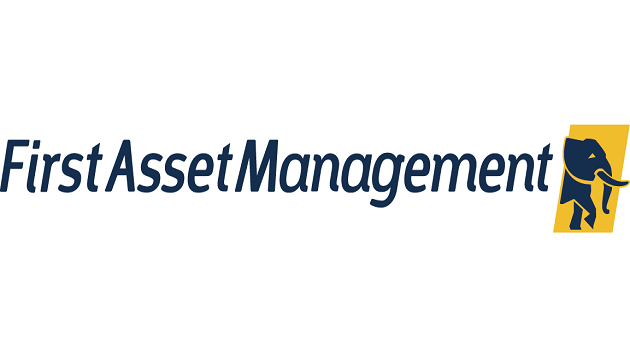E-Financial
E-dividend Will Reduce Infractions – SEC DG

Mounir Gwarzo, director general of the Securities and Exchange Commission (SEC) has described the e-Dividend platform as a game changer in the market that will ensure that infractions are reduced to the barest minimum.
Gwarzo spoke in Abuja at a Town Hall Meeting to sensitize the investing public on the e-Dividend registration currently going on all over the country.
The SEC DG expressed satisfaction with the level of success recorded so far with the enlightenment programme and urged investors to take advantage of the service and visit their registrars or banks to register.
“We have all agreed that this is the way to go, it is now left for the investors to go and register. We have agreed with all the stakeholders that for the next 90 days the registration will be free. After 90 days, anyone that wants to register will pay N100”
“Once the e-dividend is in place the issue of stale warrant will be a thing of the past, and the issue of travelling from one place to another to deposit the warrant will be a thing of the past; also, the issue of change of address will be eliminated”.
“The issue of unclaimed dividend which according to our records is in excess of N80 billion will also be a thing of the past. These unclaimed dividends came about from dividends of small stakeholders like you and I and we need to ensure that they are claimed”.
Gwarzo also stated that once the registration process is over, the next phase will be to look into claims by investors who have dividends that are less than 12 years old.
“Once we are able to get through with the registration process, those dividends that are less than 12 years, and once the registrars can certify that the people are the owners, will be paid. Gradually we should be able to address the problem of unclaimed dividends” he said.
He also listed the Direct Cash Settlement as a direct benefit to investors from the e-dividend registration as when they register for e-dividend, anytime their shares are sold, they would get the proceeds directly in their bank accounts.
“Once we get through with the e-dividend exercise, we will be able to deal with other issues in the market. The entire market has commenced Direct Cash Settlement from this month. The era where shares are sold and the proceeds given to the broker who will then pay the client is over. What is obtainable now is that once the shares of an individual are sold, the proceed is paid directly into his bank account. With this, once the client has authorized the broker and provided all his details, the proceeds will be paid directly into the client’s account.
“The era of proceeds not being remitted for shares sold will be a thing of the past. The e-dividend platform with the use of BVN is what will give us that. Once we register for e-dividend, we will also benefit from the Direct Cash Settlement. Another advantage of the e-dividend is that it will provide a very robust KYC to the operator.
“It is because of lack of KYC that we find a lot of infractions in this market. With the BVN platform which the e-dividend is leveraging, the KYC will now be very robust. People will not be able to use all sorts of identifications to claim what does not belong to them”.
E-Financial
NIBSS, Others Flag 13,417 Nigerian Fraudsters on Person of Interest Portal

At least 13,417 individuals linked to fraudulent activities in Nigeria’s financial system have been captured on the Person of Interest Portal jointly developed by the Nigeria Inter Bank Settlement System (NIBSS) in collaboration with the Central Bank of Nigeria (CBN), security agencies and other stakeholders.

Premier Oiwoh, managing director of NIBSS, disclosed this while speaking on ongoing efforts to curb fraud in the payments ecosystem, noting that the portal which contains names and photographs of suspects has been actively used by law enforcement agencies since it began capturing data from 2019.
Oiwoh, while noting that fraud management remains a core responsibility of NIBSS, noted that the number of reported fraud cases has declined over the past five years, the value of losses remains a key concern for regulators and operators.
According to him, actual fraud losses stood at about N17.67 billion in 2023 before rising sharply to N52.26 billion in 2024, mainly due to a single incident involving N31.1 billion by one entity. He noted, however, that losses dropped significantly in 2025, reflecting tighter controls and improved collaboration across the industry.
He explained that Lagos continues to account for the highest concentration of fraud cases due to its position as the country’s commercial hub, while Abuja has also recorded a notable rise, with other states still featuring in reported incidents.
By transaction channel, Oiwoh said fraud is most prevalent in e-commerce and internet banking, followed by POS, mobile and web platforms.
He identified social engineering as the most common technique used by fraudsters, warning that insider abuse now poses the greatest threat to the system.
“Insider involvement is high, and recent investigations have confirmed this. Many of the fraud cases we are seeing today involve insiders, including former bankers,” he stated, noting that coordinated industry action has yielded results, and that joint efforts last year alone prevented losses of about N20 billion that could have been lost to fraud.
He raised concern over non-reporting of fraud incidents revealing that fraud reporting declined by about 34 per cent in the last quarter of 2025.
He warned that failure to report allows perpetrators to move freely between institutions undetected.
“In several cases investigated last year, individuals involved in fraud simply moved to other institutions because incidents were not reported. Non-reporting is unacceptable,” he said.
He said NIBSS, working with the CBN, the Nigerian Financial Intelligence Unit, and security agencies, has integrated centralised data systems, including industry watch lists, politically exposed persons databases, and customer account repositories, into the Person of Interest Portal to strengthen monitoring, identity management, and fraud prevention.
Credit… Leadership
E-Financial
CBN Prepares Fresh Debit Card Rules to Improve ATM Services

Central Bank of Nigeria (CBN) is to introduce new rules to improve how debit cards and Automated Teller Machines (ATMs) work in Nigeria, according to Olayemi Cardoso, governor of the apex bank.

Cardoso, made this known through Fatai Karim, his special adviser, at an event held over the weekend.
According to him, the new rules are meant to solve ongoing problems with cash withdrawals and to restore public trust in electronic payment systems.
The CBN explained that banks will now be required to issue debit cards based on the number of ATMs they have installed. This means a bank should not issue too many cards if it does not have enough ATMs to support them.
The policy is expected to reduce long queues at ATMs, frequent machine breakdowns, and uneven access to cash across the country.
The CBN noted that repeated ATM failures and cash shortages have made many Nigerians lose confidence in digital banking, even though electronic transactions are increasing.
The Governor said the new policy will soon be introduced to clean up the system and ensure banks properly balance the number of debit cards they issue with the ATMs they operate.
E-Financial
First Asset Management Receives Upgraded Ratings from Agusto &Co and DataPro

First Asset Management, a subsidiary of FirstHoldCo Plc has recorded a significant milestone as its rating was upgraded to ‘AA’ from ‘AA-’ by DataPro, reflecting the firm’s strong fundamentals and sustained resilience in Nigeria’s Asset management landscape.

The rating upgrade, issued in DataPro’s latest rating report, underscores First Asset Management’s diversified income base, high-quality investment portfolio, and experienced team, all of which continue to support the firm’s long-term stability, sound governance framework, and consistent performance.
The improved rating highlights the organisation’s ability to maintain strong operational fundamentals while effectively navigating market cycles. It further reflects First Asset Management’s disciplined investment philosophy, prudent risk management practices, and commitment to delivering value-driven solutions to its clients.
Speaking on the upgrade, Ike Onyia, Managing Director/CEO of First Asset Management, stated, “We are pleased with DataPro’s decision to upgrade our rating to ‘AA’. This recognition affirms the depth of our investment expertise, and the consistency of our governance and risk management processes. We remain focused on sustaining strong performance while delivering reliable investment outcomes for our clients.”
In a related development, Agusto & Co. has upgraded the rating of the First Asset Money Market Fund to ‘Aa-(f)’ from ‘A+(f)’, further reinforcing the strength of First Asset Management’s product offering.
According to Agusto & Co., the upgraded rating reflects the fund’s consistent low exposure to interest rates and liquidity risks, as well as the fund manager’s commendable professionalism and prudent investment approach. The rating affirms First Asset Money Market Fund’s position as a formidable investment vehicle for capital preservation and steady income generation.
First Asset Management continues to maintain a strong position within Nigeria’s asset management industry, supported by its disciplined investment framework, experienced investment professionals, and a growing suite of products designed to meet the evolving needs of retail and institutional investors.
DataPro and Agusto & Co. are both recognized leaders in ratings and investment research in Nigeria, with extensive experience providing independent assessments across multiple sectors. Their ratings are widely accepted as benchmarks for evaluating financial strength, risk management, and business sustainability.
First Asset Management is a leading Nigerian investment manager within the FirstHoldCo Group. The firm has evolved into a full service investment platform, offering integrated wealth and portfolio solutions across the Group.
First Asset Management manages diversified strategies spanning fixed income, equities, alternatives, passive and quantitative products, in multiple currencies for a variety of individual, intermediary and institutional clients.

 General News3 days ago
General News3 days agoPalmPay User Shares Experience on Fintech Apps to Trust in Nigeria

 General News3 days ago
General News3 days agoNigerians Target Self-Improvement, Business Startups in 2026 Google Data

 News3 days ago
News3 days agoStakeholders Demand Stronger Governance and Infrastructure to Drive Tech Adoption @ Lagos AI Summit

 News3 days ago
News3 days ago35 Million Nigerians Face Acute Hunger in 2026, UN Warns

 General News3 days ago
General News3 days agoHow Inside Jobs and Policy Shocks Trigger Nigeria’s Rising Loan Crisis

 E-Financial16 hours ago
E-Financial16 hours agoFirst Asset Management Receives Upgraded Ratings from Agusto &Co and DataPro

 News16 hours ago
News16 hours agoAnambra Cuts Monday Pay to Kill Sit-at-Home

 General News16 hours ago
General News16 hours agoNigeria Treats Religious Violence as Attack on State – NSA Ribadu













